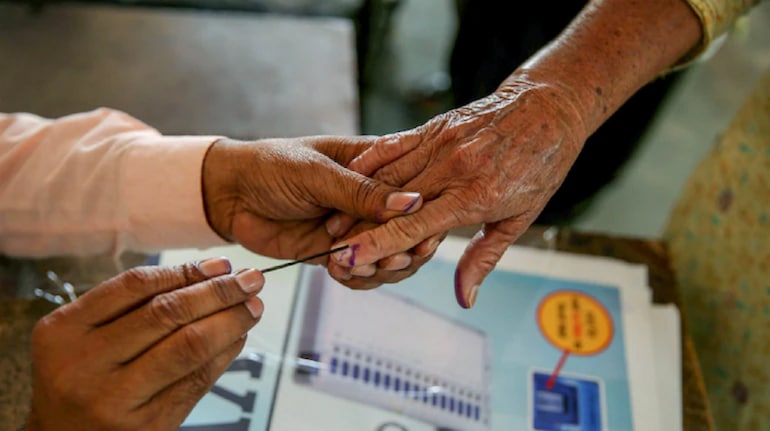



On November 20, Nepal will go to the polls to elect its Members of Parliament as well as provincial assemblies. The elections will be a significant milestone for India’s Himalayan neighbour, with it being only the second parliamentary polls since the nation adopted a new constitution in 2015.
The poll outcome will be of immense significance for India. For, who takes charge in Kathmandu could determine the trajectory of the bilateral relationship for the next five years.
What has increasingly queered the pitch for India in Nepal are the increasing inroads made by China in the land-locked nation. This, coupled with the willingness of Nepalese leaders to play ball with China, has meant that India is no longer the sole country holding sway in Nepal. In such a scenario, it becomes essential for New Delhi that it has an India-leaning government in place in Kathmandu.
The electoral outcome also becomes increasingly important as Nepal, which is strategically located between India and China, is becoming a region for increasing Great Powers contestation. The United States, too, is seeking to have greater influence in Nepal to counter its bitter rival China’s growing footprints in the region.
There are two electoral alliances in the fray for the parliamentary polls. Neither of the alliances are forged based on an ideology; rather, it’s the quest for power that’s seen politicians with disparate ideologies come together.
While one alliance is led by former Prime Minister and Communist Party of Nepal (Unified Marxist-Leninist (CPN-UML) leader KP Sharma Oli, the other is led by Prime Minister and Nepali Congress leader Sher Bahadur Deuba.
Apart from the CPN-UML, the Oli-led coalition includes the Janata Samajbadi Party, which is a Madhesi party, the pro-royalists Rashtriya Prajatantra Party, and some smaller parties. This coalition has already declared that Oli is their prime ministerial candidate.
Deuba, too, fancies his chances. However, with his alliance not having declared him the prime ministerial candidate, he will have at least five other contenders to deal with if his coalition wins a majority in parliament.
Oli’s rival for the Prime Minister’s post is expected to be CPN (Maoist Centre) leader Pushpa Kamal Dahal ‘Prachanda’. Not having got the prime ministership when he was part of the Oli-led alliance, he will be hankering for the top job now that he’s part of the Nepali Congress-led coalition. There are whispers in Kathmandu that Deuba and Prachanda have reached some kind of tacit understanding on power sharing if their coalition wins.
India-Nepal Ties
For New Delhi, it is of essence that Nepal elects an India-leaning Prime Minister. It knows very well that a government with antipathy towards India, as was the case under Oli, could well mean troubled times for the relationship.
Oli had proven to be adept at survival as Prime Minister by stoking nationalist sentiments, and flogging India. After all, he rode to power in 2017 by whipping up nationalist sentiments at a time when anti-India feelings were high following the five month-long unofficial blockade imposed by India in 2015.
Oli’s CPN-UML has promised that “Nepali territory” of Kalapani, Lipulekh and Limpiyadhura (territory belonging to India which Kathmandu under Oli was claiming) will be protected, and border disputes with India will be resolved. Though Oli claims to balance ties with China and India, the fact that the manifesto is leaning on such tactics for Oli’s return could further derail ties.
For now, Deuba seems a better bet for New Delhi.
With the Kalapani-Lipulekh-Limpiyadhura genie out of the bottle following the map change by the Oli government, it seems that no political party in Nepal can put it back in. Therefore, even the Nepali Congress-led alliance in its manifesto found it necessary to mention that Deuba raised the issue during his April visit to India.
Matters would not have reached such a pass had New Delhi not ignored the Oli government’s requests for a meeting at the foreign secretary-level–the bilateral mechanism to discuss such disputes. Smugly playing big brother, it did not accede to Kathmandu’s repeated demands for a meeting, which could have helped prevent the border row from escalating.
Likewise, New Delhi has brushed aside, for long, Kathmandu’s demand for a revision of the India-Nepal Treaty of Peace and Friendship of 1950. The report of an eight-member Eminent Persons Group which completed its work in 2018 and suggested such a revision has been given a quiet burial by India, with its members not having been able to submit the report to Prime Minister Narendra Modi in the years since. This is surely no way to sustain close ties with a neighbour with whom we don't tire of boasting of civilisational and cultural ties.
It’s all very well for New Delhi to say that it believes in a ‘Neighbourhood First’ policy. However, it would do well to realise that Nepal, despite being the smaller neighbour, justifiably prides itself on its sovereignty. By changing his country’s map, Oli reset the template of Kathmandu’s dealings with New Delhi, unequivocally challenging its big brother attitude. India should remember this, regardless of who comes to power in Nepal. The geopolitical stakes, after all, are high for India.
Parul Chandra is a Delhi-based journalist. Views are personal, and do not represent the stand of this publication.
Discover the latest Business News, Sensex, and Nifty updates. Obtain Personal Finance insights, tax queries, and expert opinions on Moneycontrol or download the Moneycontrol App to stay updated!
Find the best of Al News in one place, specially curated for you every weekend.
Stay on top of the latest tech trends and biggest startup news.